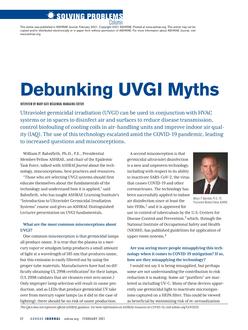Click here to purchase
The AIA 2030 Commitment urges architects to become agents of change in the face of a looming global climate crisis. The impact of energy demand and consumption in the built environment is dependent on early design decisions; architects must play a key role as climate leaders. AIA 2030 notes that the overall average predicted energy use intensity (pEUI) percent savings increased in their 2017 project reporting to 44 percent,with a two percent increase over 2016 (The American Institute of Architects, 2019). This was driven both by more stringent energy codes and expanded energy modeling with reporting signatories of the Commitment. Thus, to make meaningful impact early phase building energy modeling must be seamless integrated into the design process. It begins with knowledge. Bringing forth the knowledge (education and awareness) that comeswith a specialized skill such as energy modeling to anational architectural firm can be daunting. It requires buy-in through all levels of the organization and most importantly a common vernacular. This paper examines an architectural firm’s repositioning of inclusive design intelligence by establishing a common core curriculum centered around the integration of early phase building energy modeling with the desired outcome to achieve a carbon-neutral built environment.
Citation: ASHRAE/IBPSA-USA Bldg Simulation Conf, Sept 2020
Product Details
- Published:
- 2020
- Number of Pages:
- 6
- Units of Measure:
- Dual
- File Size:
- 1 file , 600 KB
- Product Code(s):
- D-BSC20-C011


